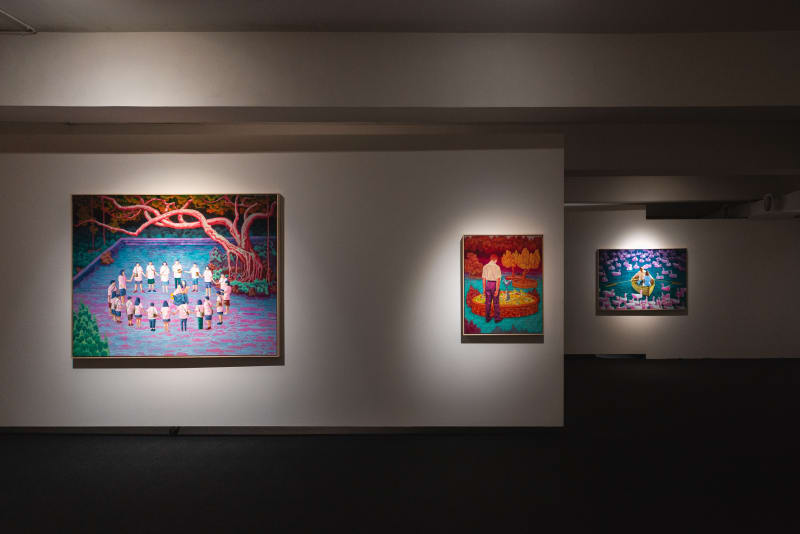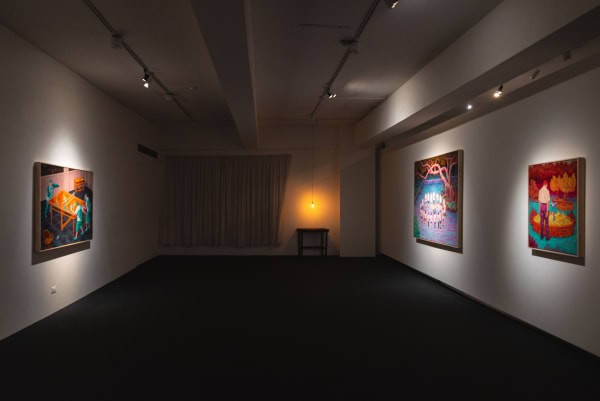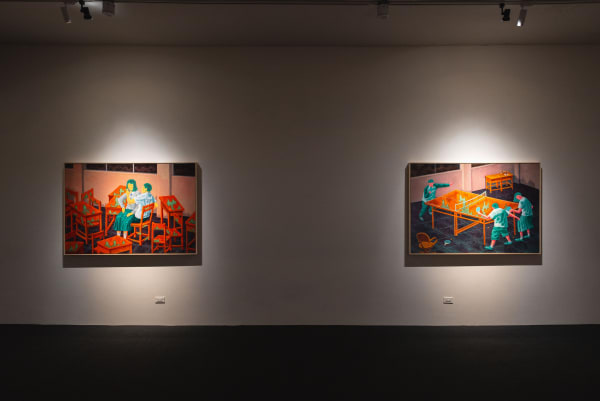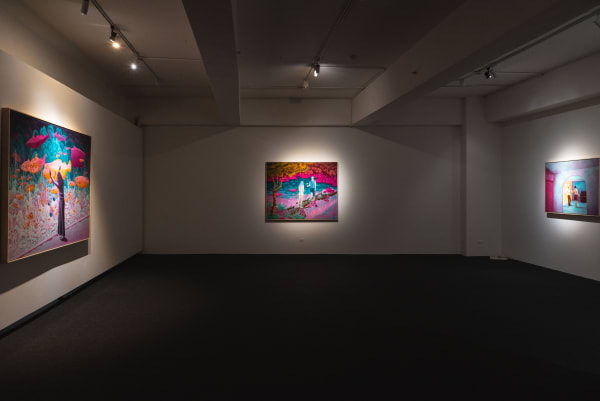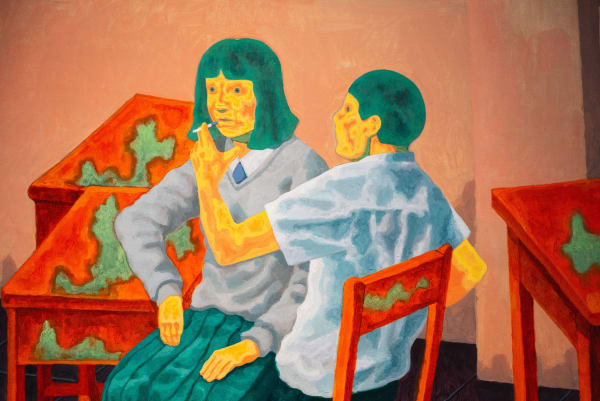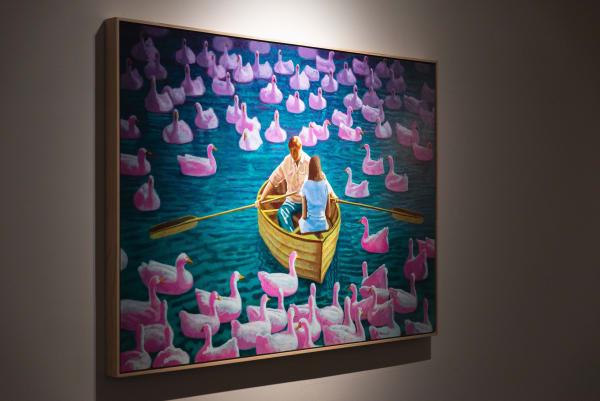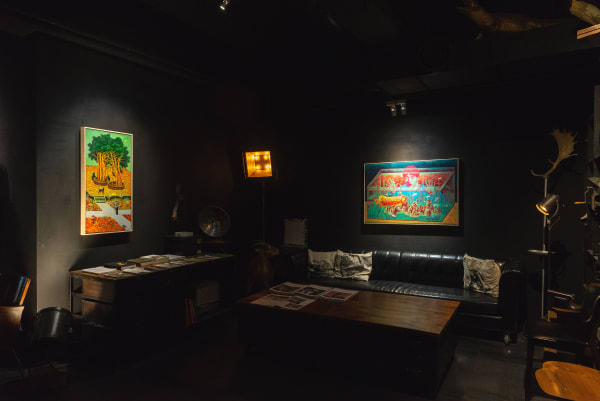Sun Pei-Mao::LLOOVVEE
"This is a confession without pressure."
He stood at the doorway, appearing calm and composed. However, the waiting process felt endless. He absentmindedly adjusted his standing position, aligning himself with the tangent of the tiles on the ground. He thought to himself that the person who answers the door might perceive him as particularly neat and dignified today. The florist had just told him that yellow lilies symbolize wealth and nobility. He pondered that perhaps his previous approaches for love had been all wrong. After all, who wouldn't like a good man with wealth and noble qualities? This was his 331st confession of love, coincidentally falling on the birthday of her favorite director, Roy Anderson. He hoped that this coincidence would bring him a bit of luck. However, even if he failed this time, it wouldn't matter. He knew all of her favorite movies and directors. He was confident that he knew her better than anyone else in the world. He had countless love codes about her, ready for him to slowly experiment with.
"I am not the person dancing with you in the dream."
In 2017, Sun Pei-Mao won the Taipei Fine Arts Award with his "Amusement Park Series" works. The series was also invited by Professor Lin Man-li, the curator of the National Taipei University of Education Art Museum, to participate in a Taiwan artist exhibition held at the Taiwan Economic and Cultural Representative Office in Tokyo's Shirokane district the following year. Taiwan began building a significant number of small and medium-sized amusement parks in the 1980s, ignoring the sudden decrease in birth rates and total population from the 1980s, and continued to renovate and expand many large temples, schools, and factories. It wasn't until the new millennium that the birth rate finally stabilized. However, due to the phenomenon of aging and a declining birthrate in society, coupled with the relocation of factories, many of these children's amusement parks and factories that were poorly managed closed down in large numbers, leading to the rise of the expression of Taiwan's ruins aesthetics. For example, famous directors Yang Dechang and Tsai Ming-liang of the New Wave of Taiwanese cinema often used ruins as a key scene to reminisce about the prosperity that had already passed and to preserve the current melancholy and the past beauty.
In the "Amusement Park Series" works, Sun Pei-Mao rebuilds the elements that frequently appeared in the early Taiwanese amusement parks, such as zebras, elephants, and sculptures from Chinese mythology that did not truly belong to Taiwan, into the work's image. With a self-deprecating visual taste, he reshapes Taiwan's common growth experience. Through the principle of reverse perspective in composition, Sun Pei-Mao reorganizes the alienated visual elements in the image into a huge virtual scene in a map-like manner, with different small stories happening in each corner of the picture.
Unlike the "Amusement Park Series" that focuses on artificial spaces such as abandoned amusement parks and religious temples, Sun Pei-Mao's 2018 solo exhibition "LLOOVVEE" locks his new painting theme on the various situational theaters that arise from the interaction between people. In emotional relationships, people engage in various one-way or two-way behavioral activities, just like the "constructed" scenery in the "Amusement Park Series". In this new series, Sun Pei-Mao "constructs" pairs of lovers in various psychological situations that arise from different places and behavioral activities. If in the "Amusement Park Series", Sun Pei-Mao humanizes the scenery and backgrounds the characters, then the new series exhibited in this exhibition is like a close-up screenshot of what happens in the "Amusement Park". In the new artwork, the characters are paired or left alone and desolate, actively engaging in various activities but appearing powerless and hopeless in their physical gestures and expressions. Just like the setbacks that always occur in love, joy and pain only exist for a short moment. Sun Pei-Mao, like a portrait painter or a psychoanalyst, shapes the characters' emotional expressions that do not correspond to their physical gestures, allowing viewers to discover various contradictions in the artwork and generate more doubts and self-interpretation while reading the works.
"That pair of hands placed palm-up on black pants, as if trying to catch something. Perhaps it's trying to catch the tears that haven't come out yet."
